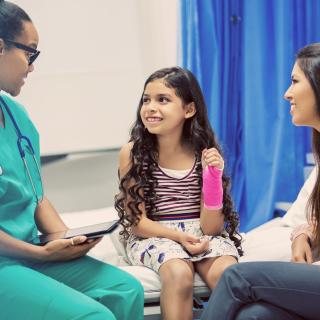Vaccines
Vaccines help keep California children safe from serious diseases like whooping cough and pertussis. Some vaccines, like COVID-19 and flu vaccines, do not provide 100 percent protection against disease but still reduce severity of symptoms and spread.
Behavioral Health
California’s children’s hospitals have a unique perspective on the state’s behavioral health system, including its shortcomings. CCHA is working to raise awareness about this crisis and to advocate for changes to state and federal law to improve access to early prevention, intervention and treatment services.
Medi-Cal
Medi-Cal is California's Medicaid program. It provides health care coverage for almost half of all children and youth in the state.
California Children's Service
The California Children's Services (CCS) Program provides diagnosis, treatment, and medical case management to approximately 207,000 children under the age of 21 who have complex and/or life-threatening health care conditions and who (1) are enrolled in Medi-Cal, (2) are low-income, or (3) have catastrophic medical care costs that would exceed 20 percent of their family's adjusted gross income.
Pediatric Workforce Training
California's children's hospitals are an essential source of pediatric workforce training. For example, California's eight, non-profit children's hospitals train almost half of all pediatricians in the state. They also are a major source of training for the state's pediatric nurses and other health care providers. Lack of consistent and sustainable funding for pediatric workforce training is a challenge, however.
